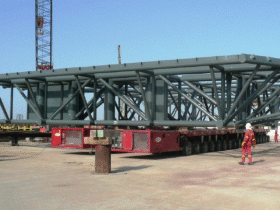Getting a good resale price when you sell your car can have a huge impact on your bottom line. Many factors affect the resale value of a car, and understanding these can help you make better decisions as a car owner. In this blog we will examine the key factors that affect the resale value of your car and offer tips to maximise it.
Make and Model
The make and model of your car play a crucial role in determining its resale value. Popular brands known for reliability like Toyota, Honda, and Ford tend to hold their value better than others. Additionally, specific models within these brands may have higher resale values due to their reputation, performance, and features. For instance, SUVs and trucks often retain value better than sedans or compact cars because of their higher demand.
Tip: Research the resale value of different makes and models before purchasing a car to ensure you choose one with a substantial resale value.
Age and Mileage
Age and mileage are two of the most significant factors that affect a car’s resale value. Generally, the newer the car, the lower the mileage and the higher the resale value. Cars with high mileage are seen as more worn out and potentially more prone to mechanical issues.
Tip: If you plan to sell your car in the future, try to keep the mileage as low as possible by limiting unnecessary trips and considering alternative transportation methods for long-distance travel.
Condition
The overall condition of your car, both exterior and interior, heavily influences its resale value. A well-maintained car that looks clean and runs smoothly will attract more buyers and fetch a higher price. Factors such as paint quality, tyre condition, and the state of the upholstery are critical.
Tip: Regularly clean and service your car. Address any minor issues promptly before they turn into more significant problems.
Service History
A documented service history can significantly boost your car’s resale value. It demonstrates to potential buyers that the vehicle has been well taken care of and that any necessary maintenance has been performed. Cars with incomplete or missing service records can raise doubts about their condition and reliability.
Tip: Keep all service records and receipts. Maintain a log of any repairs and maintenance work done on the car.
Modifications
While some modifications can enhance your car’s appeal, others can negatively impact its resale value. Extensive customization, such as aftermarket body kits or performance enhancements, may not align with the preferences of most buyers and can be seen as a potential source of future problems.
Tip: If you make modifications, opt for those that enhance the car’s functionality or aesthetic appeal without drastically altering its original state. Consider keeping the original parts to offer to potential buyers.
Market Demand
The demand for specific cars fluctuates based on trends, seasons, and economic conditions. For instance, convertibles may be more in demand during the summer months, while SUVs may see higher demand during winter.
Tip: Keep an eye on market trends and try to time your sale when demand for your car type is high.
Fuel Economy
With rising fuel prices and growing environmental concerns, cars with better fuel economy are becoming more desirable. Buyers are often willing to pay a premium for cars that offer better mileage and lower running costs.
Tip: If you’re in the market for a new car and resale value is a concern, consider choosing a model known for its fuel efficiency.
Colour
The colour of your car can also affect its resale value. Neutral colours like white, black, and silver tend to have a broader appeal and are generally preferred by a larger audience. Unique or less common colours may limit the pool of potential buyers.
Tip: When purchasing a car, opt for a colour that is likely to appeal to a wide range of buyers.
Depreciation
All cars depreciate over time, but the rate of depreciation can vary significantly between different makes and models. Some cars lose value quickly, while others depreciate more slowly.
Tip: Research the depreciation rates of various cars before making a purchase. Cars with slower depreciation rates can offer better long-term value.
Location
The location where you sell your car can also influence its resale value. Certain cars may be in higher demand in specific regions. For instance, 4×4 vehicles may be more desirable in rural areas, while compact cars might be more sought after in urban environments.
Tip: Consider the regional preferences and demands when selling your car. You might get a better price by selling in an area where your car type is in higher demand.
Why is Car Analytics the best tool for selling your car?
You can sell your car instantly with Car Analytics. You can expect a hassle-free and rewarding experience. The difference between us and other services is that we don’t hurry your vehicle to the auction. To ensure you get the best price, we contact handpicked local dealers.
Car Analytics helps build buyer confidence, making it easier to sell your car quickly and at a better price. Additionally, Car Analytics offers market valuation insights, ensuring you set a competitive and fair price. The platform’s user-friendly interface and affordability make it accessible for all car sellers, enhancing the overall selling experience.
Whether you’re selling privately or through a dealer, Car Analytics equips you with the necessary information to make informed decisions and attract serious buyers.
Conclusion
Maximising your car’s resale value involves a combination of smart buying decisions, regular maintenance, and understanding market dynamics. By considering these factors and following the tips provided, you can ensure that you get the best possible price when it comes time to sell your car. Remember, a well-maintained and strategically chosen car can be a valuable asset even years after the initial purchase.











Leave a Reply